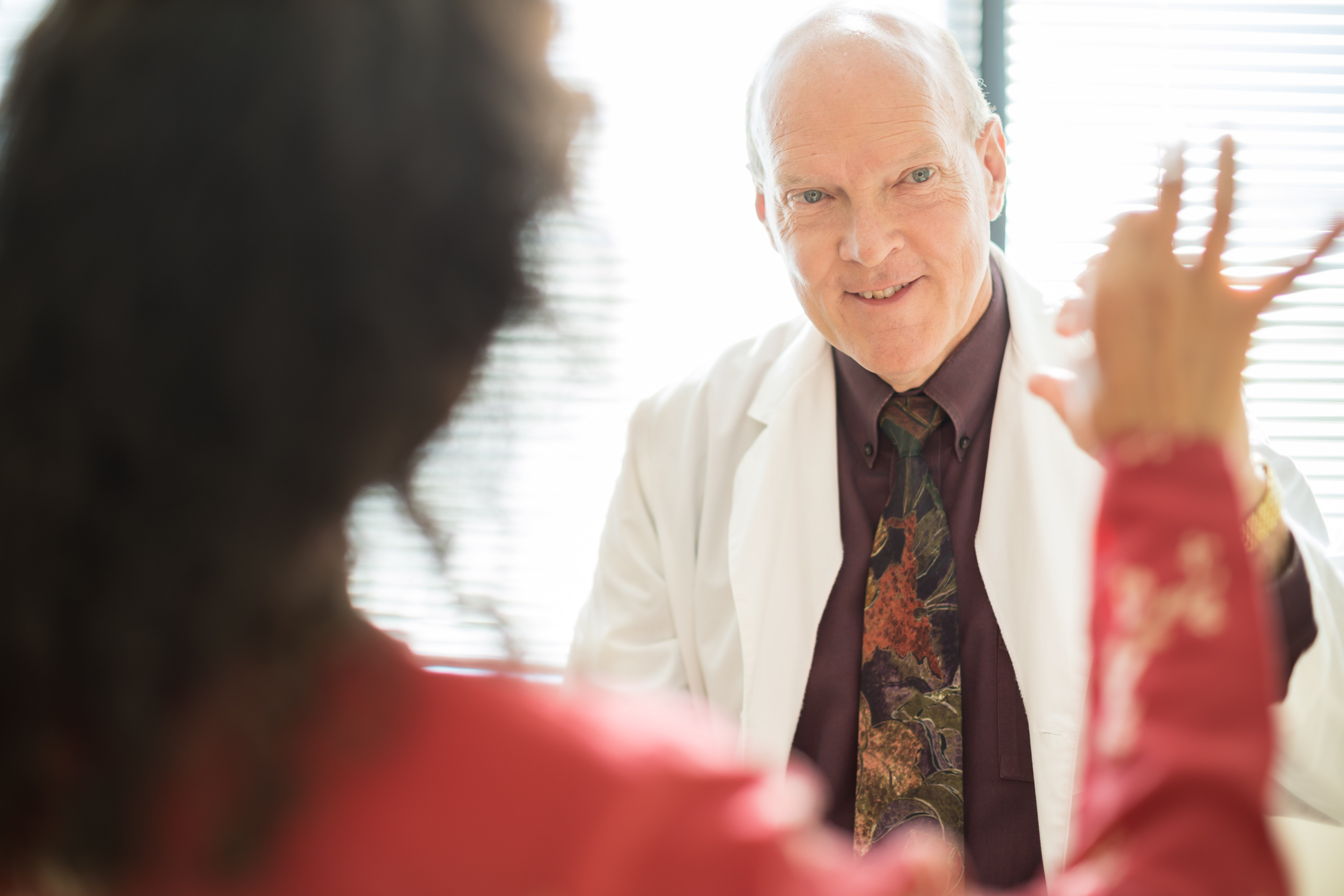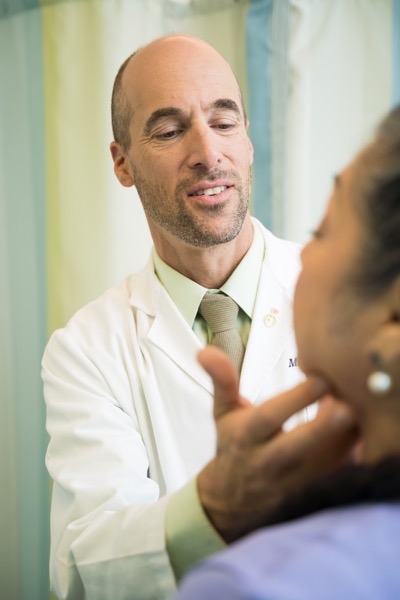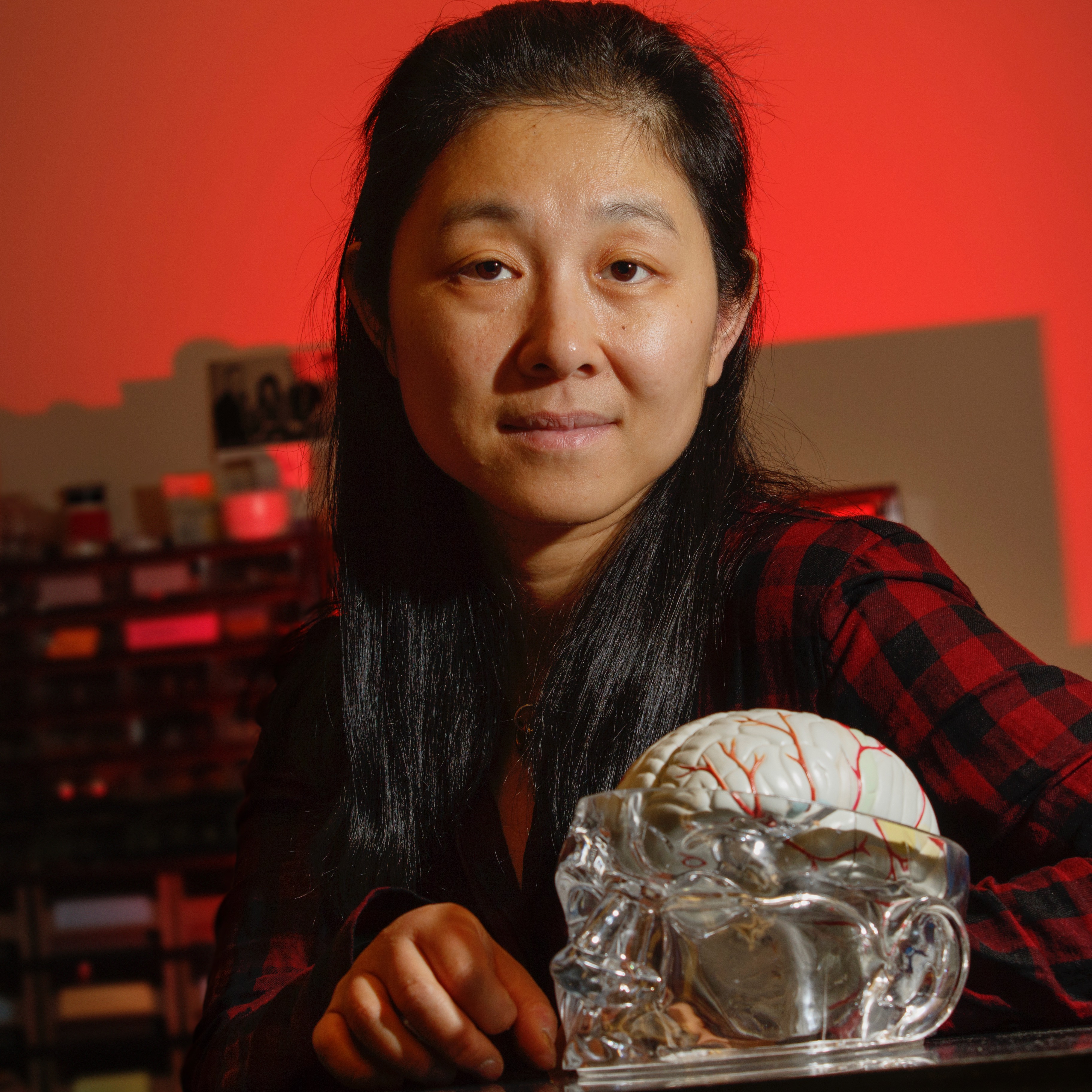For Patients: Parkinson's Disease Research
The OHSU Brain Institute is committed to leading-edge research on Parkinson's disease and other movement disorders. We offer:
- Labs dedicated to studying all aspects of Parkinson’s disease.
- Experts who have contributed to every major breakthrough in Parkinson’s research in the last 50 years.
- Dozens of scientists who work with other OHSU experts to better understand Parkinson’s disease and other movement disorders.
- Clinical trials to test new treatments and tools.
Clinical trials
Clinical trials test potential new treatments on participating patients. They give OHSU scientists a window into the causes and processes of Parkinson’s disease and other movement disorders. This allows us to:
- Learn about the body’s ability to process medications.
- See how the disease affects balance and movement.
- Find ways to help families cope.
- Help doctors improve care.
We offer clinical trials at all stages of Parkinson’s disease. Our team does research throughout the region, so you may not need to be in Portland. Learn more about OHSU Brain Institute clinical trials and innovations.

Research excellence
The OHSU Parkinson Center is devoted to bringing lab discoveries to patients as quickly as possible. Our excellence includes:
- International leadership: We are among the top U.S. centers for research on Parkinson's disease. OHSU is one of just 51 medical centers worldwide to be named a Parkinson’s Foundation Center of Excellence.
- Collaborative approach: As part of Oregon’s only academic health center, we work with scientists across OHSU. We also serve veterans through the Northwest Parkinson's Disease Research, Education and Clinical Center (PADRECC), part of the VA Portland Health Care System.
- Scientific advances: We constantly break new ground. Our team is finding new ways to slow, treat and screen for Parkinson’s.
Research programs

More than two dozen scientists lead innovations in our labs. Promising areas of research include:
- Balance and gait rehabilitation: Dr. Fay Horak's Balance Disorders Laboratory is studying the link between balance and motor signals in the brain. Her team uses findings to improve patient rehabilitation.
- Early diagnosis: Dr. Matthew Brodsky is studying whether advanced technology can identify Parkinson’s in its earliest stages, when treatment is most effective. His team uses the strongest MRI scanners available to take brain images. This could become a screening tool.
- Immunotherapy: OHSU is among select research centers studying immunotherapy medications to treat Parkinson’s. Most often used in cancer treatment, immunotherapy harnesses a patient’s immune system to fight illness.
- Parkinson’s medications: OHSU Parkinson Center co-founder Dr. Jay Nutt is an international leader in understanding levodopa, the most effective anti-Parkinson medication. He designed a system to test how levodopa works with other medications. This could lead to better treatments.
- Thinking and memory: Research by Dr. Joseph Quinn, OHSU Parkinson Center director, looks at how Parkinson’s affects thinking and memory over time. He also studies whether genetics play a role in these changes.
- Deep brain stimulation: Deep brain stimulation (DBS) surgery can reduce symptoms such as tremors in patients with Parkinson’s, essential tremor and other movement disorders. OHSU’s Dr. Kim Burchiel was the first U.S. surgeon to use DBS to treat Parkinson’s, more than 25 years ago. He has since pioneered “asleep DBS,” enabling patients to be under general anesthesia for the surgery. His team is also exploring technology that automatically adjusts the stimulation needed moment to moment.
- Scientific modeling: Our researchers develop lab models to study how Parkinson’s behaves in patients:
- Dr. Vivek Unni’s lab studies the role of certain proteins and how new treatments might halt the disease’s progress.
- Dr. Ian Martin’s lab examines genetic changes for insights at the molecular level.
- Dr. Charles Meshul’s lab looks at the effect of exercise on brain chemicals that play a role in Parkinson’s.
- Dr. Nora Gray's lab studies whether botanical and drug treatments are promising candidates for clinical trials.
Publications
Our scientists are widely published in major medical journals, and they cited by other top researchers. Recent highlights include:
- Clinical outcomes of asleep vs. awake deep brain stimulation for Parkinson disease
- Biomarkers for early detection of Parkinson disease
- Large-scale exploratory genetic analysis of cognitive impairment in Parkinson's disease
- Gait stability has phase-dependent dual-task costs in Parkinson's disease
- Sex differences in progression to mild cognitive impairment and dementia in Parkinson's disease
Find more published work from OHSU scientists on Parkinson’s and other topics using OHSU Experts.
Contact us
For information about enrolling in a clinical trial, contact a research coordinator at:
Patient resources
In the news

- OHSU researcher Tianyi Mao, Ph.D., (above) has worked to map how parts of the brain work together. She is also interested in the role of brain chemicals in Parkinson’s disease.
- Dr. Vivek Unni treats patients and does lab work that he hopes could lead to a way to find Parkinson’s disease earlier.
- Early results from a clinical trial OHSU is participating in shows promise for stopping or reversing Parkinson’s disease.
Email pcoeducation@ohsu.edu to sign up for our newsletter.